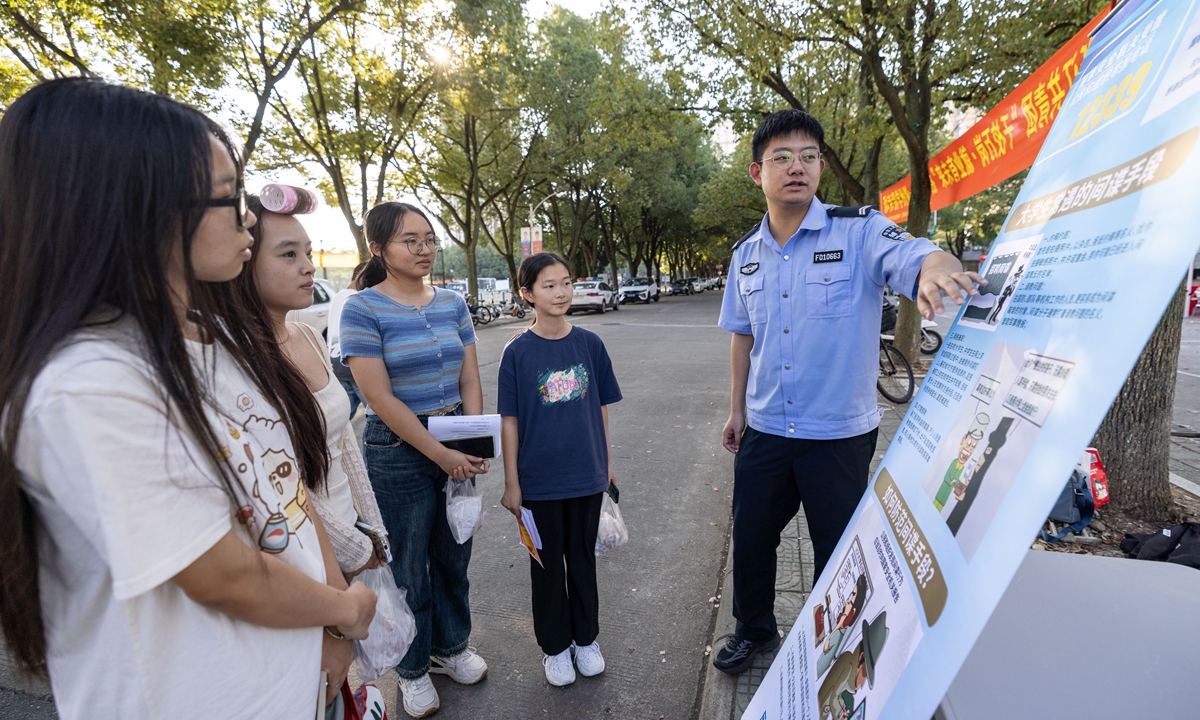China says Counter-Espionage Law won’t impact normal business operation, opposing politicizing national security concept

An education campaign for the Counter-Espionage Law in Huzhou, East China's Zhejiang Province Photo: VCG
China's ministry of state security has issued two consecutive statements refuting malicious smears about the country's newly revised Counter-Espionage Law, stressing that China firmly opposes "politicizing and weaponizing the concept of national security."
Development and security are never a binary choice, and every country has reasonable concerns over national security. China has always prudently defined national security, and firmly opposes politicizing and weaponizing the concept, the Ministry of State Security said in a statement seen on its WeChat account on Thursday.
National security is important for all countries. China prioritizes development, while coordinating development and security in order to achieve high-quality, more efficient, fairer, more sustainable and securer development, it said.
The revision of the Counter-Espionage Law embodies the principle of coordinating development and security. By clearly drawing the bottom line and the red line for security, the law will help counter espionage activities in a more precise way and better promote development, it said.
During recent years, certain countries have politized and weaponized national security, including targeting China's normal economic and trade activities and development rights with the excuse of "small yard, high fence" and "de-risking," the ministry said. It said the US has imposed sanctions on 1,500 Chinese entities and individuals, which seriously violates market economy rules and the survival of Chinese companies.
In August, the US government announced an executive order, strengthening scrutiy of investment in semiconductor, quantum computing, artificial intelligence and other high-tech sectors in China. Even the US-based Semiconductor Industry Association expressed opposition to the move, claiming that imposing overly broad, ambiguous, and at times unilateral restrictions risk diminishing the US semiconductor industry's competitiveness, disrupting supply chains, and causing significant market uncertainty.
The Chinese ministry also stressed that the Counter-Espionage Law has strict limitations on enforcement activities, and the national security agencies deal with cases in line with laws so as to fully ensure the legitimate rights and interests of entities and individuals, including foreign enterprises.
The ministry made a statement on Wednesday, highlighting that law is not aimed at normal business activities and won't impact foreign enterprises' legal investment and operations in the country.
Taking effect on July 1, the new law improves the definition of espionage activities, includes the protection of documents, data, information, and items related to national security and interests, and adds provisions that consider joining espionage organizations as espionage activities.



